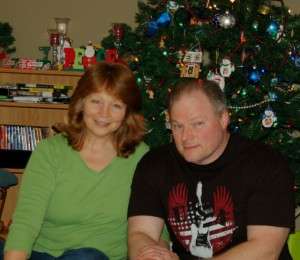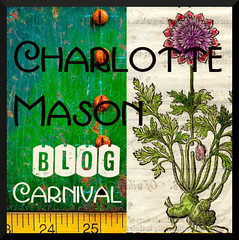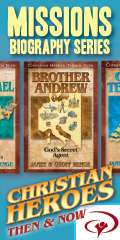Next Thursday, Sept. 29 is Rosh Hashanah.
“So what?”, you may say.
I believe it is meaningful to us believers in Jesus, because the timing of God and His cycles and patterns are recorded for us to take advantage of and to help us understand His ways. There is a proper time for things. God wants us to seek Him every day, but there are times when He is ready to receive from us and times when He is nearer. He set up the feasts and seasons, so let’s learn what we can about them and do what He desires for us to do during them.
They also help us to acknowledge the great things He did for His people in the past, for us in the more recent past, and to thank Him and prepare our hearts for what He will do for us in the future. The feasts and biblical holidays help us to set apart time to be with Him.
Rosh Hashanah is known as the Feast of Trumpets. It is known as the Head of the Year, the Jewish New Year. The previous month of Elul is the time of preparation. This season is a time of reflection, contemplation, and putting things in order and getting right our relationship with God.

Leviticus 23 calls the blowing of trumpets a memorial. Many believe it is a memorial of God’s grace to Abraham when He substituted a ram to be sacrificed instead of Isaac (Gen. 22). It is also regarded by both Jews and Christians as a memorial of the creation of the world. This holiday was the new year’s day, on which the people rejoiced in a grateful remembrance of God’s benefits and implored His blessing for the future year.
The Feast of Trumpets and Day of Atonement (Yom Kippur) ten days later are the holiest days of the Jewish year. These ten days in between are called the Days of Awe or High Holy Days. This season is a time for looking inward to spiritual growth. The themes surrounding this holiday include:
-Jewish New Year
-God’s Royalty (Coronation Day)
-Day of Judgment
-Remembrance
-Birthday of the world
Taken from Biblical Holidays, p. 279, Robin Sampson
During the days leading up to the High Holy Days we are to examine ourselves.
“The key purpose of these holy days is to come before God, our Almighty Creator and the Source of Life, to give an account of our life, our actions and interactions, during the past twelve months; also, to place our trust in Him for another year of life. Throughout the time of the Fall Feasts we are reminded of how little control we have over our lives and how we cannot know for certain whether we will live from one Rosh HaShanah to the next. Our lives truly are in His hands.”
Keren Hannah Pryor “The Center for Judaic-Christian Studies – Appointments with God”
There is a big emphasis on repentance. When the trumpet sounds, you are reminded to repent.
“The Feast of Trumpets requires a preparing of the spirit. Each person is to take time to look back in self-examination over the events and emotions of the previous year. The shofar is blown each morning in the synagogue. Psalm 27 is recited twice a day. New Year’s cards are sent, choirs practice and a special collection is taken for the poor.
This is a time of offering forgiveness and seeking reconciliation with others. Everyone is to seek out anyone who feels hurt or wronged and “clear the air” by asking for understanding for any harsh words said or deeds done during the past year. If anyone has treated someone unfairly, this is the time to correct it and make amends.”
Biblical Holidays, p. 287, Robin Sampson
It is a serious and somber, yet festive occasion. There is so much meaning in all of the symbols that if you want to understand more about this Jewish holiday, you really need to study about it in one of the books I’ve quoted from or another source about biblical holidays. The shofar (trumpet) or ram’s horn is so full of meaning that it would take another post just to describe all the reasons for using a ram’s horn and the significance of the different sounds made by the blower of the trumpet who happens to be a priest who has been trained his whole life just for that job!
“On the one hand, the mysterious, reverberating blasts should awaken our slumbering souls as they announce that the King is approaching and we need to prepare to stand in his glorious presence. On the other hand, the plaintive notes are like wordless cries that express all we cannot find words for. They carry these cries from our deepest hearts to the heart of God.”
One thing I ask of the LORD, YHWH, this is what I seek:That I may dwell in the House of the LORD all the days of my life, to gaze upon the beauty of the LORD and to seek the LORD in His Temple (Psalm 27:4).
Keren Hannah Pryor, “The Center for Judaic-Christian Studies – Appointments with God”
There is a theory that Jesus will fulfill the Fall holidays by coming on the Feast of Trumpets to carry away His Bride, the Church.
Robin Sampson tells us, “Celebrate Rosh Hashanah by teaching your children about repentance, renewing your heart toward God, and looking forward to the Second Coming of our Lord!”
There is a family element that I wasn’t aware of.
“The Talmud considers the first of Tishrei as the day on which Man was created, which marks it as the ‘birthday’ of the human race. The supernatural birth of Isaac, however, was the beginning of the first God-ordained family unit according to His Covenant promise. If one is to serve God as Creator and King and to participate with Him in building His Kingdom, one must start with one’s self and one’s family.”
“To achieve redemption and perfection of God’s purposes in our lives requires a willingness to sacrifice. More often than not, the sacrifices we are challenged with, as well as the inherent blessings, arise in the context of family.”
“At the conclusion of Yom Kippur a final Tekiah is sounded. It is a long, victorious, unbroken note that is drawn out as long as the shofar blower has breath. It signals full forgiveness and spiritual restoration, and sends one forth into the year ahead more whole and prepared to go forward in newness of life.”
Keren Hannah Pryor, “The Center for Judaic-Christian Studies – Appointments with God”
Here are some action steps I intend to take:
-I’m planning to read Psalm 27 every day. I’ll try to read it to all of my kids as often as I can.
-I will discuss repentance with them and do it!
-I’ve already thought of one friend from way back that I need to apologize to. I’ll attempt to do that through Facebook.
-I’ll get alone with God and ask Him to forgive and purify me so that I can stand before Him and walk in newness of life and have a sweet year during this coming year.
In our lives we have seen God pour out some amazing blessings right around the beginning of the Jewish new year. One year we got new (to us) furniture, including a couch and love seat, dining table and hutch, entertainment center and more. They were all like new and beautiful.
We always start anticipating surprises and blessings from God around this time of year.
So I would encourage you to have hope and believe for God to bless you with a sweet year this year, too, and for blessings to start overtaking you!









 "Oh that God would give every mother a vision of the glory and splendor of the work that is given to her when a babe is placed in her bosom to be nursed and trained! Could she have but one glimpse in to the future of that life as it reaches on into eternity; could she look into its soul to see its possibilities; could she be made to understand her own personal responsibility for the training of this child, for the development of its life, and for its destiny,--she would see that in all God's world there is no other work so noble and so worthy of her best powers, and she would commit to no other's hands the sacred and holy trust given to her." -JR Miller
"Oh that God would give every mother a vision of the glory and splendor of the work that is given to her when a babe is placed in her bosom to be nursed and trained! Could she have but one glimpse in to the future of that life as it reaches on into eternity; could she look into its soul to see its possibilities; could she be made to understand her own personal responsibility for the training of this child, for the development of its life, and for its destiny,--she would see that in all God's world there is no other work so noble and so worthy of her best powers, and she would commit to no other's hands the sacred and holy trust given to her." -JR Miller







I have had that book by Robin on my wish list for a couple of years now … I think I’m really going to have to get it soon. This was beautiful! It really is an amazing thing to look at what God has done, prepare our hearts and lives for Him, and delve into the depths of meaning in the holidays celebrated by His chosen people.
In many ways to us it means a new start. Throwing rocks in the water to represent things in our lives we wish to cast off.
Oh, and blowing a shofar in my backyard. Totally freaks out the neighbors dog.
Thanks for coming by, Dysfunctional Parrot! I checked out your site. Wow, you’ve got some interesting stuff there.
Yes, I meant to add more about the new beginnings theme of Rosh Hashanah. I’m thankful for the chances God gives us to start over. It’s so easy to get lazy and lackadaisical, and I’m thankful for the new year or two (or three!) that God gives us to take stock of how we’re doing and to the best of our ability to wipe out the things we’ve messed up and to begin anew. His mercies are new every morning!